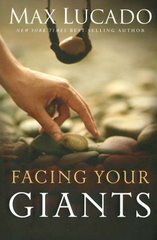Is Your Motivation About Gifts Wrong?
In Romans 11:29 we read that "The gifts and calling of God are without repentance." A gift can be operated purely in the flesh or mind; it depends purely on who is backing the motivation and direction.—In I Corinthians, chapters 12-14 we find Paul correcting their motives regarding the gifts. In chapter twelve he itemizes the gifts (the manifestation gifts as well as the personality gifts); in chapter thirteen he talks of motives back of the gifts; and in the fourteenth chapter he encourages them to seek after the best gifts.
To better understand Paul in his teaching here, we must go back into the original Greek writings where we find that the translators (who are not inspired) have unfortunately placed the first verse of chapter thirteen as the last verse of chapter twelve. Let us read it as it should have been:
"But covet earnestly the best gifts; and yet show I unto you a more excellent way. Though I speak with the tongues of men and of angels, and have not charity (love), I am become as sounding brass, or a tinkling cymbal."
Paul is now no longer speaking of the gifts but of a WAY. The Corinthians had all the gifts and all the power. Paul had to correct them, for their motivation was wrong. Rather than their motive coming from their natural heart and life and disposition, it must come from the love of God shed abroad in their hearts and lives; the ‘agape' love is to control the power of the manifestation in the gifts.
When the gifts are not motivated by the love of God—that broken bleeding heart of Jesus—, if we don't have that to become the motive for their manifestation, it is nothing to God but sounding cymbals and rattles! He warns them that even though the gift may bless somebody, as far as its reaction in the one possessing the gift is concerned, it is not to the glory of God, and the heart is not refreshed, neither does he grow. "It profits me nothing."
Paul tells those concerning spiritual gifts, as we read in chapter twelve, that he wants to do a little corrective teaching. He then goes on in chapter thirteen to give the law by which these gifts are to be operated. "Now show I unto you a more excellent way,"—not a more excellent gift. Love is never a gift; love is a fruit. He then goes on to correct their motivation. We will never understand chapters twelve through fourteen of I Corinthians unless we read them all as one thing.












No comments:
Post a Comment